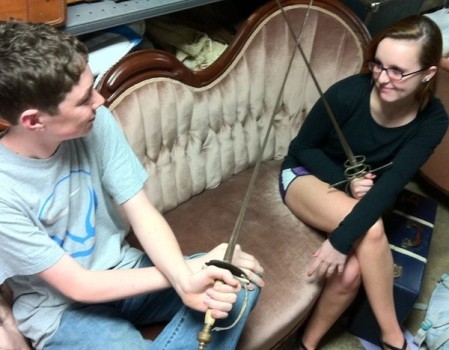Everybody loves those days in history class when you have a substitute teacher and you can just sit back and enjoy some dramatically-titled war documentary. But why do we enjoy, and our parents condone, viewing footage or pictures of mass graves or gruesome battle reenactments portrayed in videos, textbooks, and novels? Conversely, students and parents seem quick to object to lectures about contraception, STDs, and certain health lessons, but both violence and sex are typical world issues. Why does one seem to controversially trump the other at MHS? When sex comes up in school, angry objections seem inevitable, but when examples of violence or cruelty arise, students and parents hardly blink. Does it really make sense that condoms cause more controversy than violence or cruelty?
Morals are largely cited as the reason for objections to sexual content in school. However, why don’t these same morals kick in when we are exposed to violence? A parent of a MHS junior believes the controversy surrounding sex, more so than other topics, exists because sex is a more “personal issue” and most students only experience significant violence “indirectly”.
It sounds obvious; sex is “personal” and just makes people, particularly hormonal teenagers, uncomfortable. War crimes certainly don’t bring about giggles when brought up in class. People in the halls don’t gossip about war or hear songs on the radio about massacres. It’s not that students and parents are heartless and dismiss wrongdoings; they just may not seem relevant to them.
However, just because sex seems more personal and therefore more taboo does not make violence less horrible. One day we will all have to leave the remarkably nonviolent halls of MHS and live in the big, bad world – one where sex becomes decreasingly taboo with age and violence remains horrifying. Knowing this, let’s approach these two contested issues with a more balanced mindset and give each the equal consideration they need.































